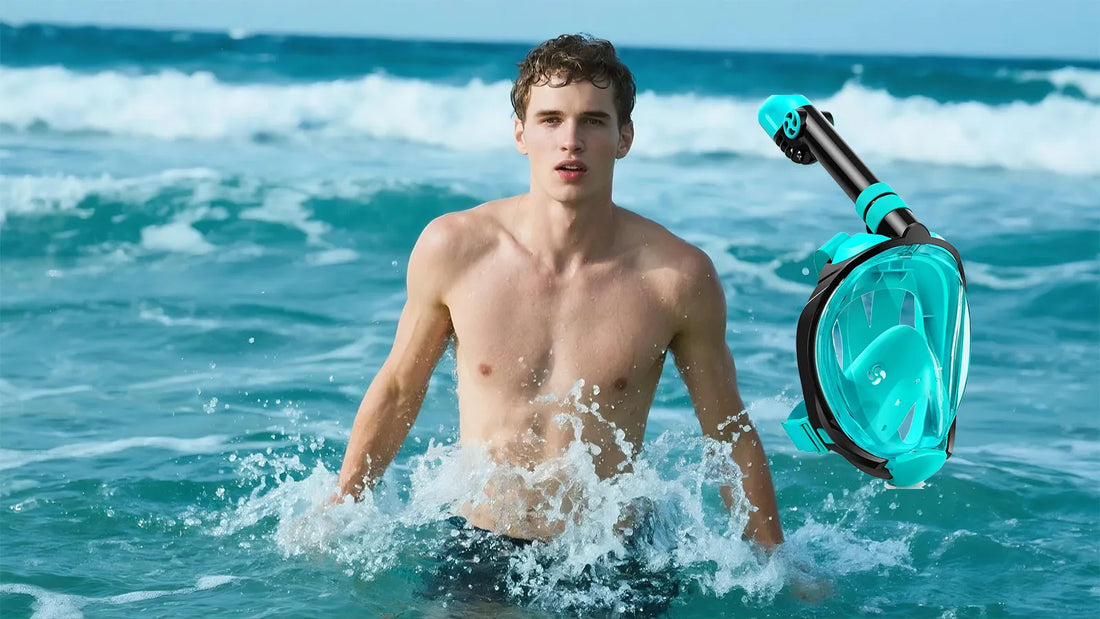Free diving is an exhilarating and transformative experience that allows you to explore the underwater world with nothing but your breath. Whether you're drawn to the serenity of the ocean or the challenge of pushing your limits, learning free diving can open up a new realm of adventure. This guide will walk you through the essential steps to get started, ensuring you build a strong foundation and dive safely.
Understanding the Basics of Free Diving
Before you take the plunge, it's crucial to understand what free diving entails. Free diving is the practice of diving underwater without the use of breathing apparatus, relying solely on your ability to hold your breath. It requires a combination of physical fitness, mental discipline, and proper technique. Start by familiarizing yourself with the basic concepts, such as breath-holding, equalization, and buoyancy control.
Building Your Breath-Holding Capacity
One of the most critical skills in free diving is the ability to hold your breath for extended periods. Begin with simple breath-holding exercises on land to build your lung capacity and improve your CO2 tolerance. Practice diaphragmatic breathing to maximize oxygen intake and learn relaxation techniques to calm your mind and body. Gradually increase the duration of your breath holds, always prioritizing safety and listening to your body.
Mastering Equalization Techniques
Equalization is essential for preventing barotrauma as you descend underwater. The most common method is the Valsalva maneuver, which involves gently blowing against a closed nose to equalize pressure in the ears. However, advanced free divers often use the Frenzel technique, which is more efficient and less strenuous. Practice these techniques regularly to ensure you can equalize comfortably at different depths.
Developing Buoyancy Control
Buoyancy control is vital for conserving energy and maintaining stability underwater. Learn to use your breath and body position to achieve neutral buoyancy, allowing you to hover effortlessly at any depth. Practice in shallow water to get a feel for how your body responds to changes in pressure and buoyancy. Over time, you'll develop the ability to move gracefully and efficiently through the water.
Training Your Body and Mind
Free diving is as much a mental challenge as it is a physical one. Incorporate cardiovascular and strength training into your routine to improve your overall fitness and endurance. Yoga and meditation can also be beneficial for enhancing breath control, focus, and relaxation. Remember, mental preparation is key to staying calm and composed during your dives.
Learning from Experienced Instructors
While self-study can be helpful, nothing compares to learning from experienced free diving instructors. They can provide personalized guidance, correct your technique, and ensure you're diving safely. Look for certified courses that cover essential topics such as safety protocols, rescue techniques, and advanced diving skills. Hands-on training in a controlled environment will give you the confidence to explore deeper waters.
Practicing Safety First
Safety should always be your top priority when free diving. Never dive alone; always have a buddy who can assist in case of an emergency. Familiarize yourself with the signs of hypoxia and shallow water blackout, and know how to respond if they occur. Use proper equipment, such as a weight belt and fins, and always dive within your limits. Regularly review and update your safety knowledge to stay prepared for any situation.
Exploring Different Free Diving Disciplines
Free diving offers a variety of disciplines to suit different interests and skill levels. Static apnea focuses on breath-holding while stationary, while dynamic apnea involves swimming horizontally underwater. Depth disciplines, such as constant weight and free immersion, challenge you to dive as deep as possible. Experiment with different disciplines to find what excites you most and continue to refine your skills.
Joining a Free Diving Community
Connecting with other free divers can be incredibly rewarding and motivating. Join local clubs or online forums to share experiences, tips, and encouragement. Participating in group dives and competitions can also help you improve your skills and push your limits. The camaraderie and support of the free diving community can enhance your journey and keep you inspired.
Continuing Your Free Diving Education
Free diving is a lifelong learning process. As you gain experience, consider pursuing advanced certifications to deepen your knowledge and skills. Attend workshops, seminars, and training camps to learn from the best in the field. Stay curious and open to new techniques and perspectives, and always strive to improve your practice.
Embarking on the journey to learn free diving is both challenging and deeply rewarding. With dedication, practice, and a commitment to safety, you can unlock the incredible potential of your body and mind. Dive into the world of free diving and discover the freedom, beauty, and adventure that await beneath the surface.

